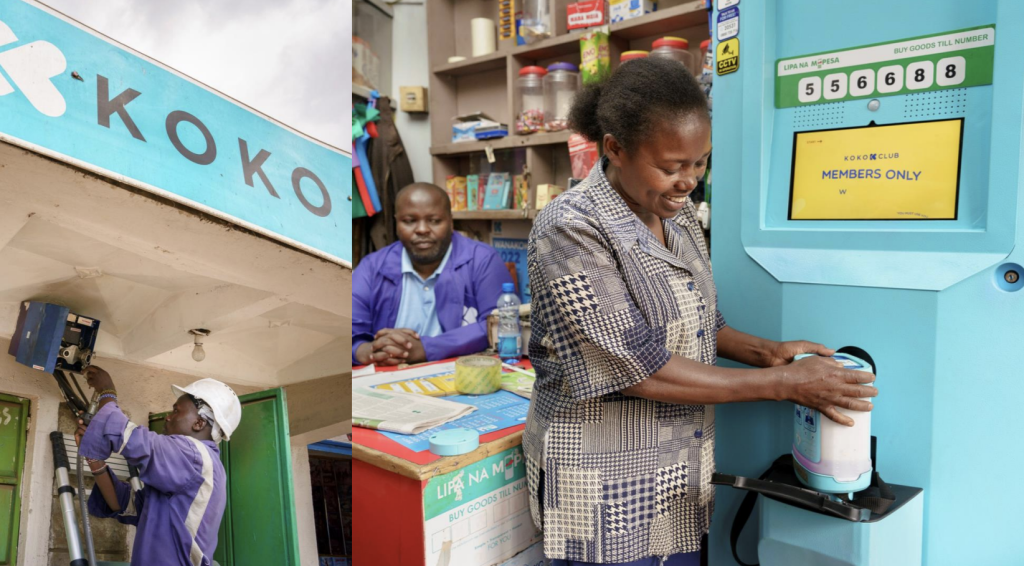Thepeer, the fintech that shut down in April 2024, returned $357,960 to investors in June, completing the shuttering of the startup founded in 2021. The refund suggests that an angel investor who wrote a $10,000 cheque would have received a $2,280 refund.
Those refunds were possible because the founders, Michael Okoh and Chike Ononye, decided there was no scale-up route for the product and chose to move on.
After announcing the shutdown in April 2024, at least two angel investors wanted answers on how much money the startup had in the bank. They wanted to know how Thepeer spent the $2.1 million it raised in a June 2022 seed round that valued the company at $5 million. One publication said the company had only $450,000 in the bank when it shutdown.
However, the founders told early investors that despite the July 2022 funding announcement, the company had only received $1.35 million in that round. Two publications reported in April that one investor asked to audit the company’s accounts before the shutdown was finalised.
A pre-seed investor who asked not to be named told TechCabal that no audit happened.
Other investors were happy to treat any possible discrepancy in the accounts as a rounding error and simply wanted to move on from the matter, one person with knowledge of the talks said. Venture capital firms, which typically loathe public involvement in spats with portfolio companies, often choose the path of least resistance in these matters.
Thepeer did not respond to a request for comments.
The return of capital comes four months after the company’s surprise shutdown, despite having twenty months of runway left. That runway could have given the founders more time to experiment and find product market fit, a common occurrence among struggling startups.
Startups like Target Global-backed Kippa pivoted from fintech to edtech after shutting its agent banking business.
“Despite what seemed like a significant runway, we forecasted that we would not be able to onboard and drive integration of our services with customers at a fast enough rate to achieve scale and sufficient revenue,” Ononye told TechCabal in April.
Thepeer’s shutdown was not for lack of effort. The startup explored a buyout by larger companies to boost returns but could not align investor interests with those of the larger firms, Ononye said.
The startup also considered pivoting to at least four verticals, including fraud detection, the creator economy, and financial reporting but decided against using investor funds for the pivot, one person familiar with direct knowledge told TechCabal.
Thepeer’s lack of market fit was a “chicken and egg” problem. Its solution, which enabled customers to move money across different business wallets, required many businesses to integrate with its payment platform to succeed.
It struggled to convince businesses, spoilt with options like Paystack and Flutterwave, to integrate its payment gateway. When it managed to onboard businesses, they were hardly active. The startup onboarded 82 businesses in its three-year lifetime but only a quarter were active, highlighting its struggle with adoption.
With limited businesses on its platform, it failed to achieve the transaction scale needed for profitability. The startup struggled to generate meaningful revenue, making less than $1,000 from the over $500,000 it processed in the first three quarters of 2023.
The unlicensed startup also struggled with regulatory compliance when it tried to onboard enterprise businesses like banks, which could have provided the scale needed for survival. “Compliance was tricky… and their well-regulated fintech partners didn’t help them consistently,” one person familiar with the matter told TechCabal.
“We are open to getting acquired by a licensed business that will allow us fully execute and accelerate onboarding of enterprise businesses including banks,” read Thepeer documents from October 2023 seen by TechCabal.
“When you are selling a niche payment method in the market, it is always going to be an uphill battle,” Ononye told TechCabal.
Thepeer’s payment gateway, which required customers to hold deposits across multiple wallets, competed with popular payment methods like cards, transfers, and cash, which dominate Nigeria’s payments market.
“There’s a huge education gap in what they are doing, and they just weren’t prepared for that,” one person close to the business told TechCabal.
Thepeer needed to change customer behaviour and drive wallet-to-wallet transactions before achieving market fit, a costly venture the business could not afford. Fintechs like OPay and Moniepoint succeeded in changing behaviour only after significant investment.
“We were pioneering a completely new method of payment that did not exist in the market before, and from the get-go, it was a bet on whether it was going to work out or not. Building the tech was not going to be enough. (We) required more time and capital than we had anticipated,” Ononye said.
Another stressor the business had was the time required to integrate with each business as the startup, which employed 10 people, struggled to onboard businesses quickly enough.
“Integrations required hands-on engineering from us for each wallet, one after the other, as no two businesses functioned the same way. We also needed to ensure that the experience for customers of the businesses was as consistent as possible,” Ononye said.















